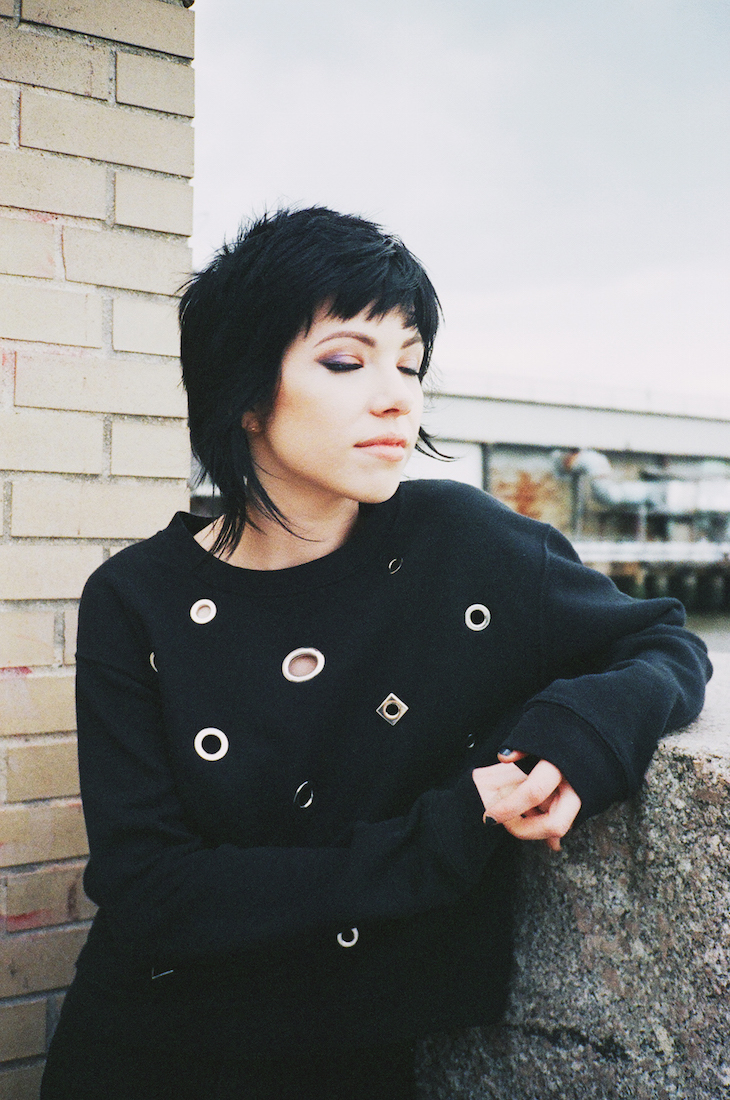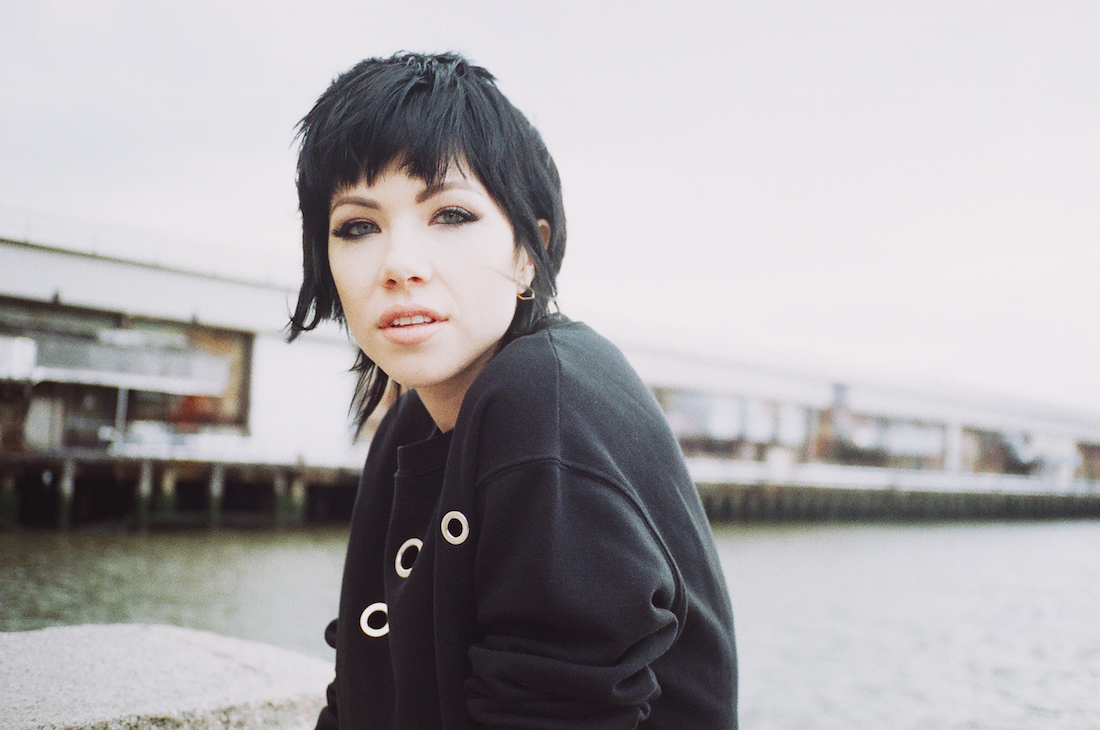Carly Rae Jepsen is entering her artistic prime.
Besides releasing and touring her third studio album, 2015’s EMOTION (arguably the best of her career so far), Jepsen still found a moment to play Frenchy in Fox’s live TV Grease adaptation, present hero Cyndi Lauper with a major songwriting prize, and lend her voice to the intro for the newly rebooted Fuller House. Have mercy.
Though the singer/songwriter tends to be known to the greater world as the force behind “Call Me Maybe,” Jepsen’s oeuvre is much more extensive and compelling than the bubbly 2012 megahit. In the years since that track and its eventual album, Kiss, debuted, Jepsen has taken her songwriting in a different direction — to make music that’s more appealing to herself as a listener.
“It took me a long time to write EMOTION, but the main thing that I kept coming back to was to alleviate all pressures,” she says. “I wanted to write a pop album with maturity that adults could embrace too, because I’m an adult. It’s really nice to speak more candidly about where it’s all coming from, and feel like it has a more authentic flare to it.”
And EMOTION has been roundly embraced. Landing on umpteen year-end Best Of lists, it was a victory of a nature different than the viral single, an artistic triumph — and one that paid off for Jepsen.
“What I love about music is deeper than success in that way,” she notes. “I’m starting to feel much more comfortable with the type of recognition we got from EMOTION. It might not be the same thing exactly, but I think it means a lot to be embraced by the songwriting community and when I look at what’s important to me, nothing beats that.”
Jepsen has cultivated a massive audience to whom relatable lyrics are also important. Her recent headlining show at San Francisco’s Noise Pop festival saw the entire crowd mouthing along to Jepsen’s candid writing and ebullient tempos. “I wanted [the album] to be something people can engrain in their own lives and be a soundtrack for whatever is going on in their life and love chaos.”
Success.
We spoke with Jepsen about EMOTION, Grease, and growing up Tanner.
EMOTION‘s lyrics are so earnest and vulnerable. Do you find those characteristics have come to define you as a songwriter?
It’s actually been a while since I’ve heard [“vulnerable”]. Back in the day, I auditioned for Canadian Idol, and the judges — it like became a joke between my family and me — would give comments, and at least one would say that performance was very “vulnerable.” I’d be like, “What the hell does that mean? Is that good or is that bad?” I must have that quality in what I’m doing. I definitely wanted EMOTION to feel like an album where you’re wearing your heart on your sleeve, living out the fantasy of love rather than being too subtle or coy about it. I think that’s what I like about 80s lyrics — [they’re] very gut-wrenching.

Maybe some people confuse that honesty in songwriting with vulnerability?
The lyrics do stem from the way I used to write when I first started this thing, like journal entries. I’m a little bit more safe and subtle in my real-life romance, but in my music, you want to play up the fantasy. You want to say the things you’re too afraid to say out loud. I really tried to let myself do that.
How is it been, going from wrapping the album straight into Grease? Was this production very different from your Broadway run?
Totally different. [Grease] was two months that felt like an adult summer camp with a bunch of friends that became family. But the TV aspect was a challenge. I was more terrified of that performance than about any in my life, just because of the awareness that it was going everywhere and it’s an iconic show. You want to be present and in the moment. You have one time to give it all. But I think that was part of the excitement and thrill.
Do you have a favorite character from the movie?
[Grease] was one of those VHS tapes my family had going on repeat all day long…obviously Sandy is the most attractive to you [as a child]. As I got older I think it was Riz, because she’s got this dark side. I think Vanessa [Hudgens] did a stunning job. The idea of Frenchy never came to mind until they asked if I’d be interested in auditioning for the part. As I dug in, I realized how lovable that character is and how badly I wanted to have my turn at it. And meeting Didi Conn alleviated a lot of my nerves. She was a confidence builder being by my side and offering guidance when I needed it.
Full House is such a hugely iconic show, and you did the opening song — did you even get the show in Canada…?
Are you kidding me? Yeah! I grew up on Full House. When I was young, I didn’t know how to tell time, and we’d go on camping trips and I’d ask my dad that annoying question, “How much longer till we get there?” And my stepmom would go “Three more Full Houses” and I’d be like, “Ok, I know.”
How did it feel to lend your voice to this amazing legacy show?
Once in a while [my project manager] will get on the phone and go through a list of approvals, and she [said], “I’ve got a couple things you’re probably not going to be too into — Full House is doing a remake and asked if you want to sing the song with Butch Walker. He’ll be producing it. You’re probably not interested.” I was like, “WHAT??! YES I’M INTERESTED!” Full House was my childhood. I went in for a late night session, and got to meet the original singer and writer of the song, and he helped produce the vocals. It was just one of those “pinch me” days I’ll never forget.
Credits
Text Alyssa Pereira
Photography Rebekah Campbell
